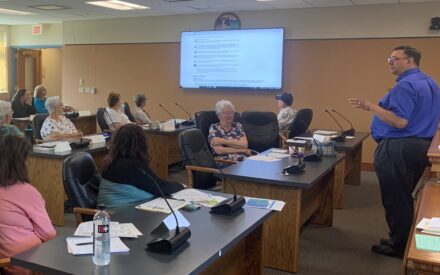Cooperatives are member-based organizations that differ substantially from investor-owned, for-profit corporations. Cooperative businesses are owned by their members, who can be consumers, producers, employees, or groups of other enterprises. Cooperatives play an important role in urban and rural economies throughout the United States. They are a key driver of wealth creation and personal well-being, and they promote social and economic stability, particularly in rural economies. Despite the benefits of cooperative enterprises, financial support for cooperative development is sparse, and many traditional business support organizations do not understand their unique needs.
Cooperatives have unique training and education needs, so the UW Center for Cooperatives (UWCC) delivers programming that helps participants obtain the knowledge, skills, and professional connections needed to make positive contributions as cooperative members, directors, employees, or supporters. In 2023, UWCC made progress toward achieving this outcome through the following research, outreach, and education programs:
Cooperative Governance Research Initiative (CGRI)
Launched in 2021, CGRI is the first-ever study to collect data about cooperative governance practices across sectors and over time. Its purpose is to generate robust, longitudinal data that empowers cooperatives across sectors to reflect upon and improve their governance structures, processes, and culture. In 2023, UWCC leveraged 2021 CGRI data to produce two sector specific reports for food co-ops and agricultural co-ops and deliver nine research-based talks on governance practices to approximately 500 cooperative practitioners, educators, and scholars. The data also informed our Governance Training Series for New Directors and our direct technical assistance to new and established cooperatives. Feedback on the reports we released in 2023 and from post webinar and presentation evaluation survey indicate that this research program is generating data and insights that are helping cooperatives reflect on and improve their unique governance practices.
Consumer Cooperative Management Association (CCMA) Conference
UWCC hosts CCMA, a national conference for food co-op leaders. CCMA 2023 brought together nearly 450 food co-op leaders from 80 cooperatives. The conference included two keynote addresses; tours highlighting the host co-ops stores, community partners dedicated to food access, and organic producers of Sacramento; and 25 breakout sessions featuring cooperative peers sharing lessons learned and strategies for the future. Post-conference evaluation demonstrated that this educational programming helped build the capacity of food co-ops by improving governance policies and store operations, diversifying supply chains, strengthening boards, and increasing mutual understanding and connection between boards and general managers.
Farmer Cooperatives Conference (FCC)
In 2023, UWCC hosted the 26th Annual Farmer Cooperatives Conference. FCC is a national event highlighting the latest strategic thinking on cooperative issues and trends. It provides a forum for cooperative directors, managers, and those doing business with agricultural cooperatives to learn and exchange ideas with policy, research, and legal experts about issues currently affecting the agricultural cooperative community. Post-conference evaluation showed that this educational programming equipped farmer-owned co-ops with the necessary knowledge to plan for labor shortages, improve board recruitment and vetting techniques, and better manage the unique equity management challenges co-ops face.
Governance Training Series for New Directors
Given the importance of board training and education for the success of cooperatives, UWCC has historically provided some form of governance training to Wisconsin cooperatives. At the end of 2022, UWCC re-tooled our director training program, launching a three-part series for new directors held during the spring. The 101 module was offered in late 2022, followed by the 102 and 103 modules in early 2023. The training series had a total of 109 registrants. Scholarships were offered for all three trainings to ensure the training was accessible to all directors. Post-training evaluations indicated that the educational programming helped improve co-op performance by helping co-op boards better organize their work through board calendars, policy manuals, and enhanced evaluations processes for the board and the general manager.
Download Article

 Food Entrepreneurship Ecosystem Development, Education, and Evaluation
Food Entrepreneurship Ecosystem Development, Education, and Evaluation Depth-to-Bedrock: Updated Mapping & Decision-Making
Depth-to-Bedrock: Updated Mapping & Decision-Making Building High-Quality Programs to Help Youth Thrive
Building High-Quality Programs to Help Youth Thrive Nature’s Navigators: Supporting Neurodiverse Learners
Nature’s Navigators: Supporting Neurodiverse Learners


